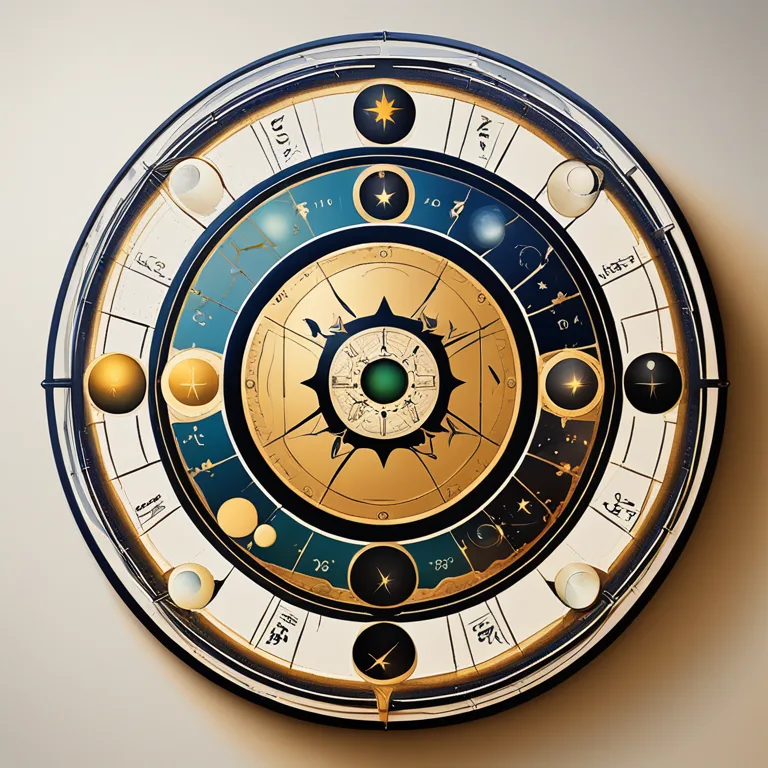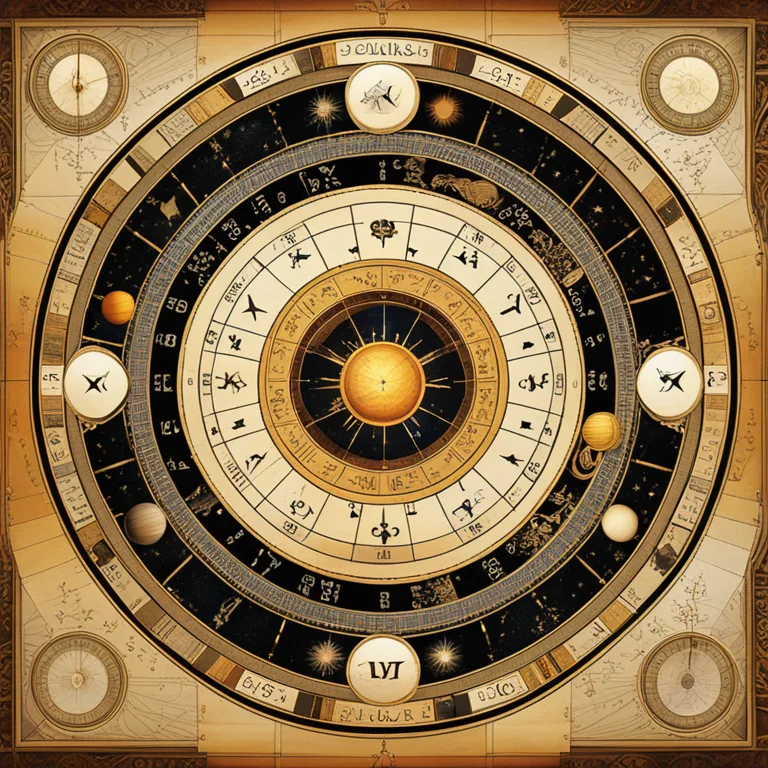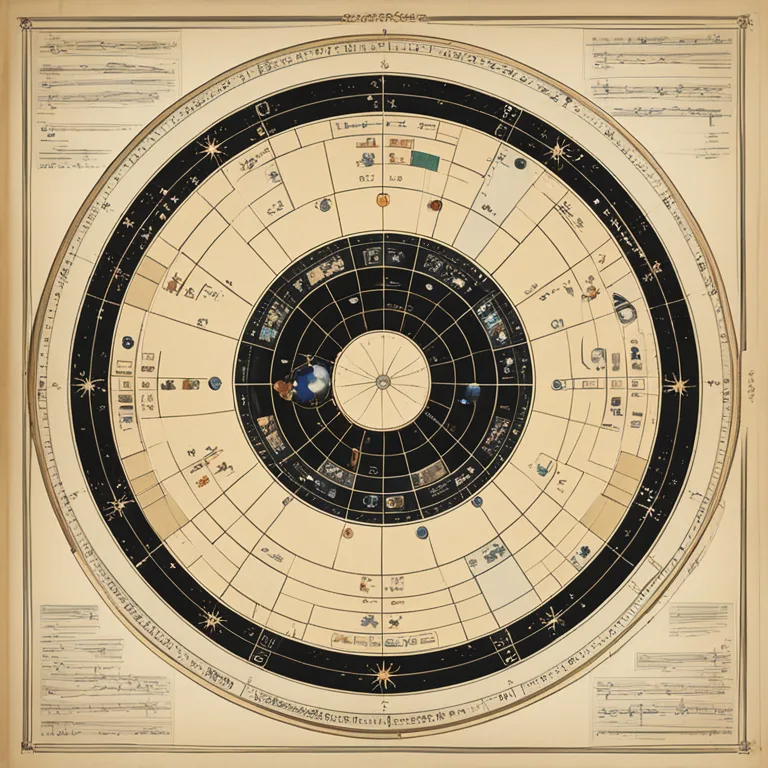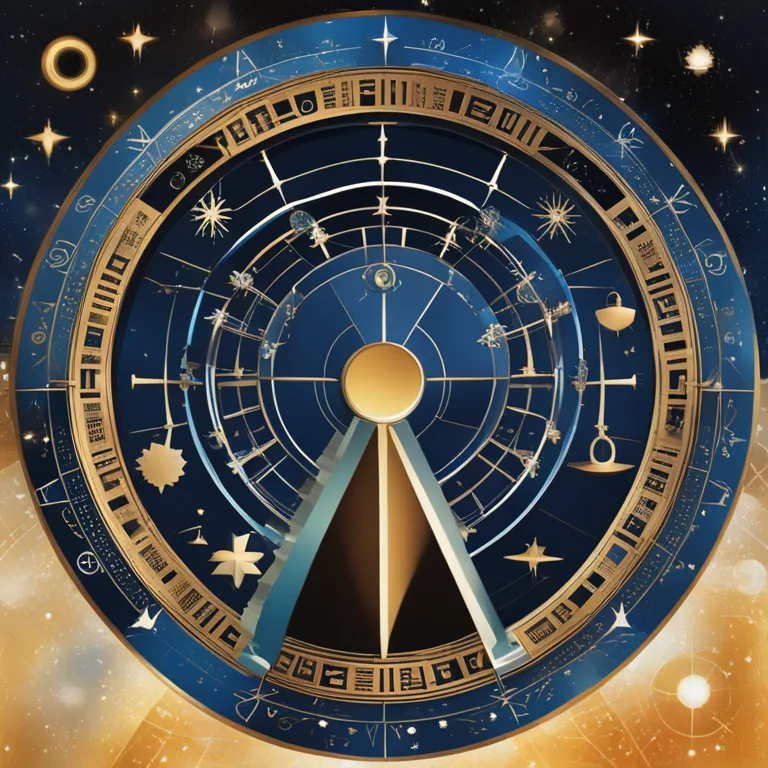
Can A Birth Chart Predict Your Future?
Discover whether your birth chart holds the keys to your future and the extent of its predictive power.
article by Priya Deshmukh
The Essence of Birth Charts
Astrology posits that the positions of celestial bodies at the moment of one's birth can influence a person's life trajectory and personality traits. A birth chart is a snapshot of the heavens from the viewpoint of the birthplace, encapsulating the cosmic blueprint that astrology enthusiasts believe to be significant. This chart, also known as a natal chart, delineates the positions of the sun, moon, and planets within the zodiacal circle. Critics often question the validity of birth charts, suggesting they are too general or reliant on the Forer effect. Ultimately, the trust in birth charts hinges on individual belief systems.

Astrology and Predictions
Astrology enthusiasts contend that a birth chart reveals more than personality; it presents hints of future events. Transits and progressions are two predictive techniques not to be confused with the foundational natal chart. A transit occurs when a current planet aligns with a natal chart position, while progression refers to symbolic movement in the chart as life unfolds. Professional astrologers often merge these methodologies to forecast future possibilities. However, skepticism arises due to the non-replicability of astrological predictions and the influence of cognitive biases in interpretation.

Understanding Probabilities and Choices
A central debate is whether astrology impinges upon free will. Proponents assert that astrology simply outlines probable events and character propensities, leaving room for personal agency. Hence, they advise using astrological insight as a tool for reflection rather than deterministic prophecy. In societies increasingly intrigued by personalized metrics, the nuanced interpretation of astrological data can complement individual decision-making processes. Nevertheless, detractors maintain that subjective interpretation undermines astrology's ability to objectively predict outcomes.

Scientific Scrutiny and Astrology
The scientific community largely dismisses astrology as lacking empirical support, emphasizing the absence of mechanisms explaining how celestial movements could impact individual destinies. Methodologically, astrology does not conform to scientific expectations, since astrological predictions aren't consistently testable or falsifiable. However, the field has evolved with the incorporation of psychological dimensions, potentially reviving its relevance in contemporary culture. The latest iterations of astrological theory delve more into archetypes and collective unconscious concepts popularized by Jungian psychology.

Technological Advances in Astrology
Technology continues to revolutionize astrology, making chart construction and interpretation more accessible. In 2024 and beyond, astrological software has become increasingly sophisticated, integrating astronomical data and historical texts with user personalization features. AI advancements are also enabling nuanced interpretations and pattern recognition within astrological readings. While these improvements enhance user experience, they also reignite debates about the preservation of astrology's esoteric traditions against the backdrop of modern algorithms.
The Bottom Line
Astrological predictions, often manifesting as general themes rather than specific events, may provide valuable insights for some. However, it is essential to approach astrology with critical thinking and an understanding of its limitations. The power of a birth chart in shaping one's view of the future depends largely on one's personal belief in its significance. Whether for self-exploration or entertainment, astrology continues to captivate human curiosity about the unknown fates that the stars might hold.
Published: 12/22/2023
Modified: 12/22/2023
More predictions
Come back here soon to learn more about yourself and your future



